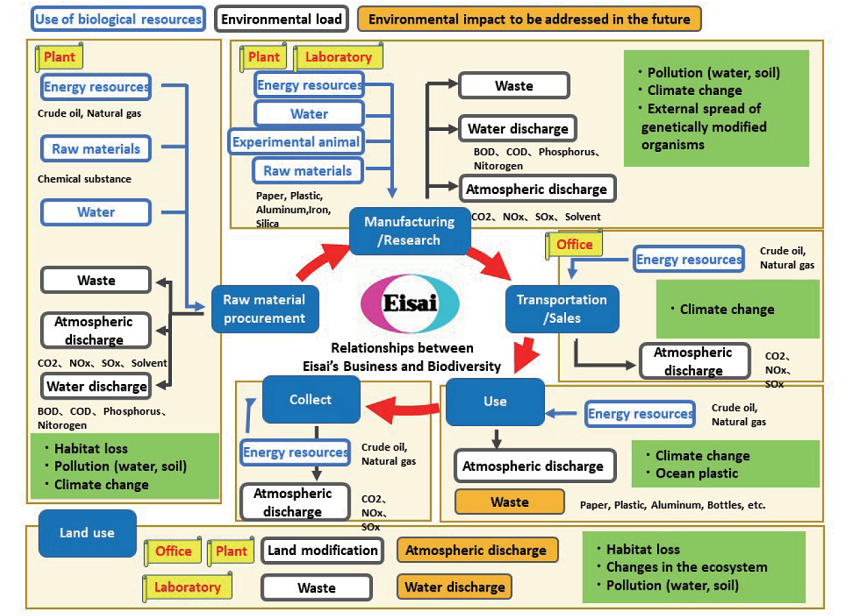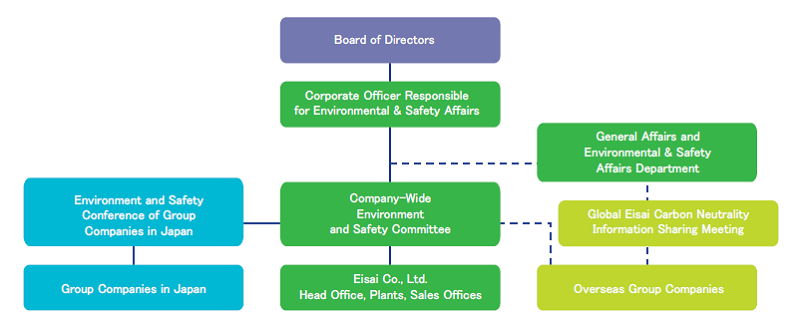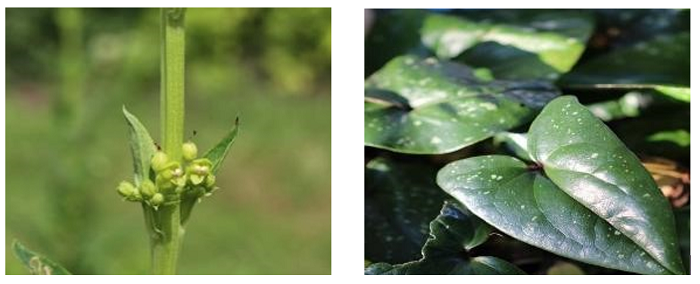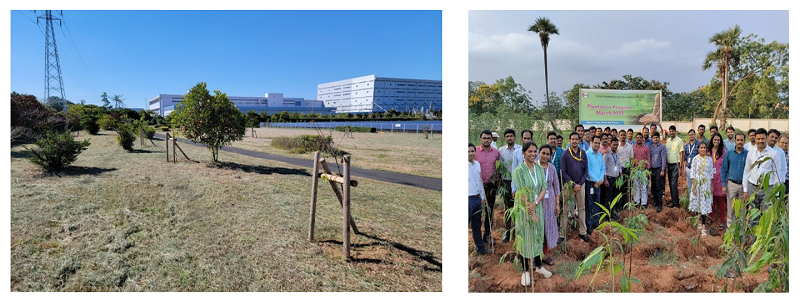Policy and Basic Concept
As a global healthcare company, the Eisai Group has established the ENW (Eisai Network Companies) Environmental Protection Policy and conducts business activities with an emphasis on global environmental protection. It is stated in our Action Guidelines that we will “6. Contribute to the realization of a society in harmony with nature by developing business activities that take into consideration the conservation of biodiversity” and as such, we are promoting biodiversity conservation efforts on a global scale.
The Eisai Group conducts its business activities by utilizing natural resources brought by biodiversity. The anti-cancer agent Halaven, which was discovered and developed in-house is derived from the natural product Halichondria okadai and the conservation of biodiversity is becoming an important issue for our sustainable business activities. The Biodiversity Guidelines established in August 2020 by the Eisai Group state our basic philosophy and principles aiming to ensure that all employees understand the importance of biodiversity and fulfill their social responsibilities relating to biodiversity.
Eisai Biodiversity Guidelines
Basic concept
The Eisai Group is grateful for the blessings of nature produced by biodiversity and strives to conserve biodiversity and use biological resources in a sustainable manner. We will consider the impact of our business activities on biodiversity and contribute to the realization of a society coexisting with nature based on harmony with the global environment.
Basic policy
- We will strive to understand the impact of our business activities on biodiversity not only in the Group companies but also in the entire supply chain, and conduct corporate management that emphasizes the conservation of biodiversity.
- We will actively promote the reduction of greenhouse gas emissions, the prevention of environmental pollution caused by the emission of chemical substances, and the proper disposal of waste as well as the effective use of resources for the purpose of reducing the environmental impact that adversely affects biodiversity.
- We will conduct our business activities in compliance with international laws, regulations, and agreements as well as the fair use of biological resources, including genetic resources to ensure their sustainable use.
- We will raise awareness of our employees regarding the necessity to conserve biodiversity and contribute to the creation of a society that fosters biodiversity through cooperation and collaboration with stakeholders in and outside Japan.
- We will improve our credibility with society through proactive disclosure of environmental information related to the conservation of biodiversity.
Targets and Actions
Map of Relationships Between Eisai's Business and Biodiversity
The 15th Conference of the Parties to the Convention on Biological Diversity (COP 15) was held in Montreal, Canada in December 2022. COP15 adopted the 30 by 30 goal of conserving at least 30% of continental and marine areas by 2030. COP15 also called for companies to assess the impact of their operations on biodiversity and promote conservation activities.
In fiscal 2022, we surveyed the relationship between our business and biodiversity with reference to “The Business and Biodiversity Interrelationship Map®” created by the Japan Business Initiative for Biodiversity (JBIB) to understand how our business activities depend on and impact biodiversity. (See the figure below.) As a result, we do not believe that there are any risks that threaten biodiversity in our business activities at this time. However, we have identified the following two long-term risks:
- Impact on biodiversity in surrounding areas due to emissions of hazardous substances into the water and air at operating sites
- Environmental impact of waste generated from product use (e.g., marine plastic problem)

Setting Mid-term Biodiversity Targets
The Eisai Group has set the following mid-term targets to contribute to the conservation of biodiversity. In addition to existing initiatives, we will undertake new activities to reduce the impact of our business activities on biodiversity.
- FY2025
Each ENW and business site will identify at least one important species in the vicinity of their operating site and implement conservation activities (at least 10 of the 13 major operation sites).
- FY2030
1. All major operating sites have initiated conservation activities for important species in the vicinity of their sites, and species are being preserved and maintained at 7 or more sites.
2. Introduced eco-friendly materials for product packaging, etc. (introduced in several product items)
*Major manufacturing and research sites are as follows:
Kawashima Plant, Tsukuba Research Laboratories, Kashima Plant, Kobe Research Laboratories, EA Pharma Fukushima Plant, Suzhou Plant (China), Benxi Plant (China), Bogor Plant (Indonesia), Vizag Site (India), European Knowledge Center (UK), Exton Site (U.S.), Baltimore Plant (U.S.), G2D2 (U.S.) Some of the endangered species protected in the Medicinal Harbal Garden (Left: Gomanohagusa, right: Kotoukan mallow) Tree planting
Structures and Systems
Under the supervision of the Board of Directors, the Eisai Group has established the Company-wide Environment and Safety Committee chaired by the Corporate Officer responsible for Environmental and Safety Affairs. The Committee deliberates and makes decisions on important agenda items related to environmental safety. In addition to promoting global activities such as reduction of GHG emissions and efficient use of resources, the Committee contributes to the strengthening of activities to identify environmental risks in Japan and overseas and establish countermeasures to address these risks. Important environmental issues related to the entire Eisai Group that are discussed by the Committee are reported to the Executive Committee, the highest decision-making body of the business execution departments, for deliberation, resolution, and implementation. Resolutions of the Companywide Environment and Safety Committee are shared with the Eisai Group companies in Japan and overseas at meetings of the Domestic Eisai Network Environment and Safety Conference and Global Eisai Carbon Neutrality Information Sharing Meeting, and the Group work together in addressing these issues.
Each operational site has established its own environmental management system and promotes environmental activities. The main production sites in Japan as well as the Suzhou Plant in China and Vizag Site in India have all obtained ISO 14001 certification and are conducting activities in accordance with the ISO standards, while also striving to raise environmental awareness through activities such as facilitating environmental education and training to address environmental risks. In addition to complying with environmental laws, ordinances and agreements, we periodically conduct internal environmental audits by a department specializing in internal auditing to identify and resolve issues.

Operational Sites Certified under ISO 14001
- Kawashima Plant and Kashima Plant, Eisai Co., Ltd.
- Fukushima Plant, EA Pharma Co., Ltd.
- Suzhou Plant, Eisai China Inc.
- Vizag Site, Eisai Pharmaceuticals India Pvt. Ltd.
Initiatives
Recycling of PTP (press through pack) Sheet Scraps
PTP sheets, mainly made from plastic and aluminum, are used for packaging of medicines. The manufacturing processes of the sheets generate plastic wastes, including the sheet scraps. Eisai’s Kawashima plant, by far, has mainly employed thermal recycling (a method to collect and use thermal energy from waste incineration) systems for combustion of disposing plastic wastes.
Meanwhile, Eisai registered as “Kakamigahara SDGs partner” in April 2024 for supporting the initiatives of Kakamigahara city, the home of the Kawashima plant. As a partner company, Eisai will be working on to reduce CO2 emitted from waste incineration by creating recycling system for PTP sheet scraps, as well as creating recycling society through promoting the use of various recycled plastic goods within the city with other partner corporations.

Image Diagram
Plantation
Since the Kawashima Plant began operations in March 1966, it has been working to preserve the natural environment within the plant under the concept of “All for Patients and Nature.” The Kawashima Plant’s greenery coverage is approximately 50% of the approximately 470,000 m2 site area, and approximately 30,000 trees, including Japanese black pines, are maintained and managed. Furthermore, the Medicinal Herbal Garden at the Naito Museum of Pharmaceutical Science and Industry, located within the Kawashima Plant, cultivates and conserves about 700 kinds of medicinal and beneficial plants. In particular, we protect 38 of the threatened species (including near threatened species) on the Ministry of the Environment’s Red List. In fiscal 2022, we assisted the propagation of five of these species.
In addition, the Kashima Plant is systematically managing greenery and planting more trees on the premises. Furthermore, the Vizag Site (India) continues its tree-planting program on World Environment Day in June to raise environmental
awareness among employees. In fiscal 2022, 2,000 trees were planted on the premises of the plant.

Garden (Left: Gomanohagusa, right: Kotoukan mallow)


